Creoles of St. Louis by Paul Beckwith (RARE, First Edition, Genealogical Annotations), 1893 📜🎨🇺🇸
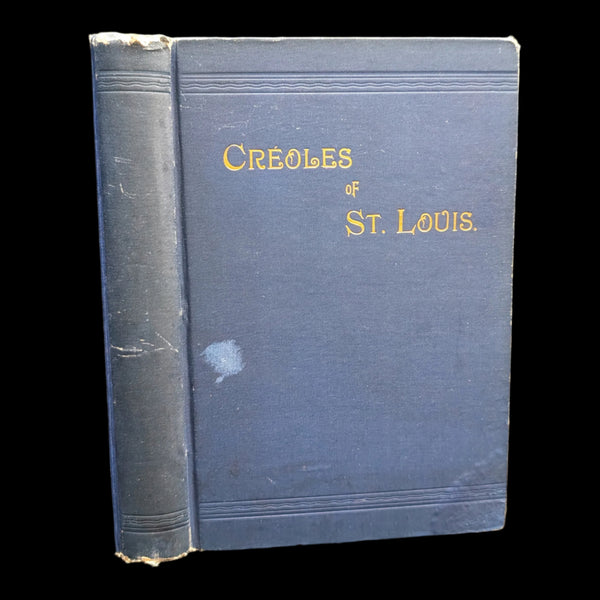
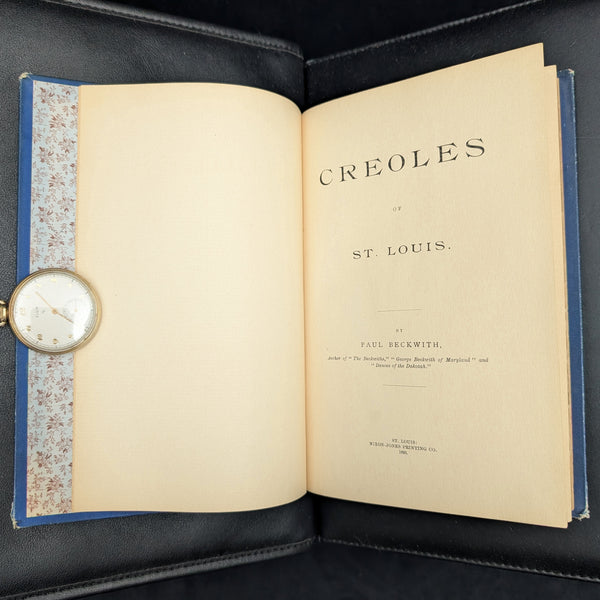
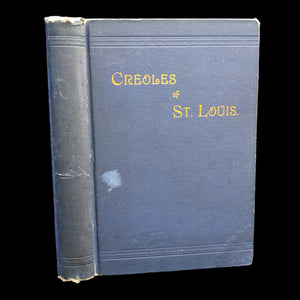
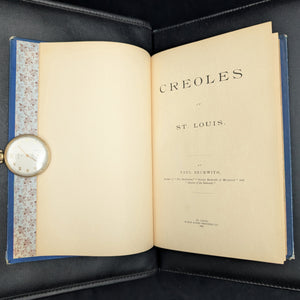
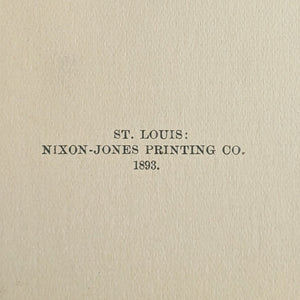
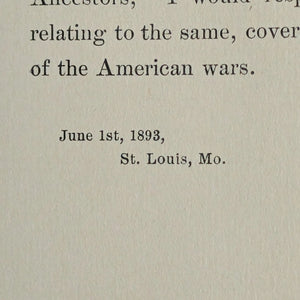
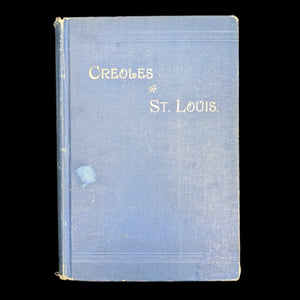
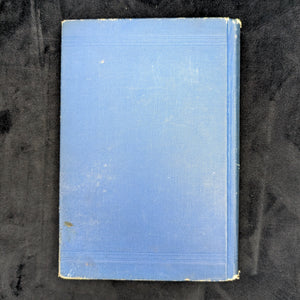
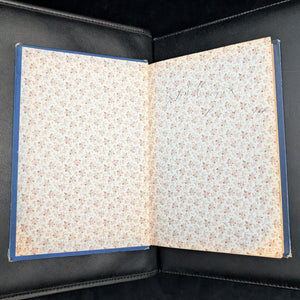
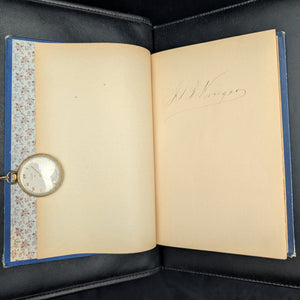
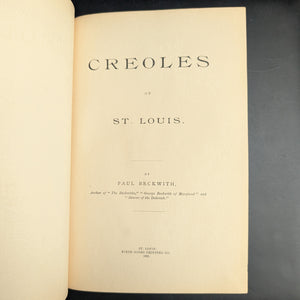

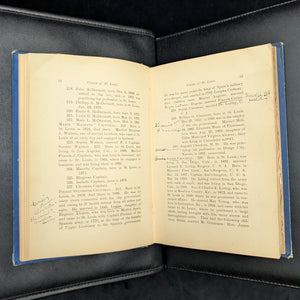
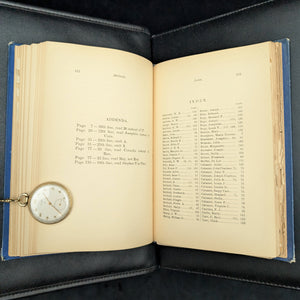
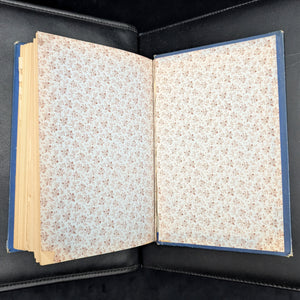
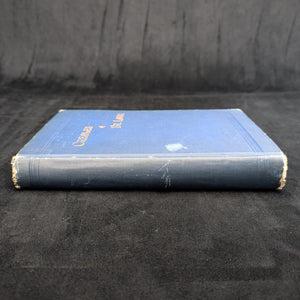
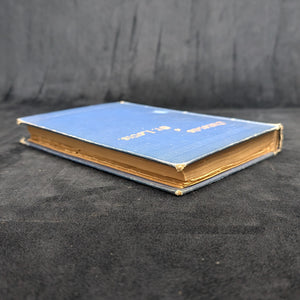

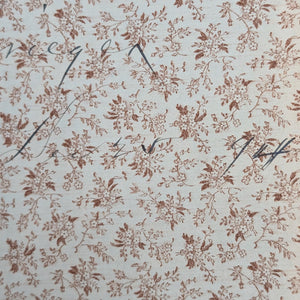
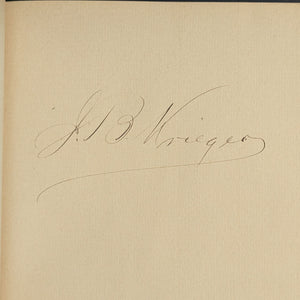
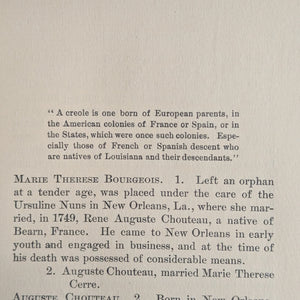
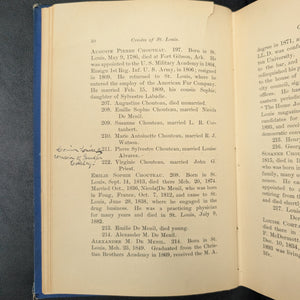
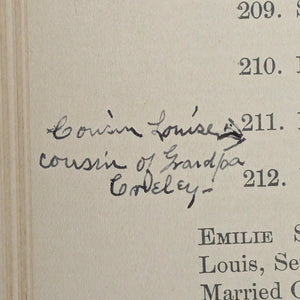
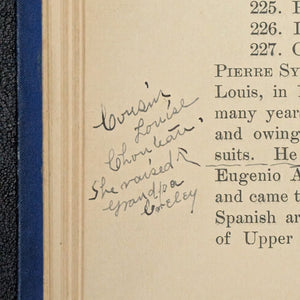
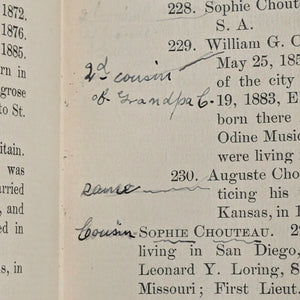
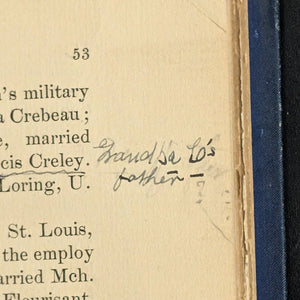
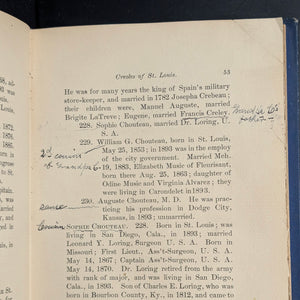
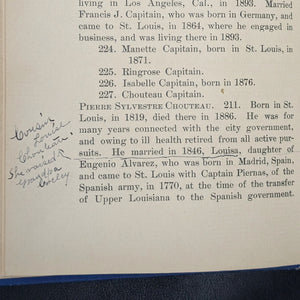

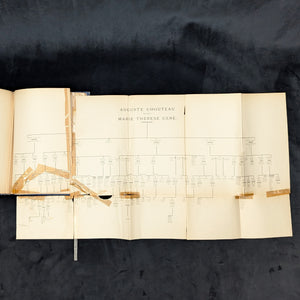
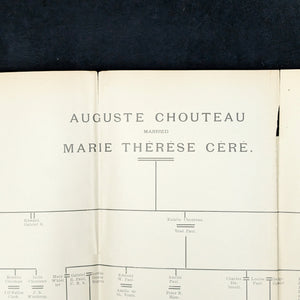
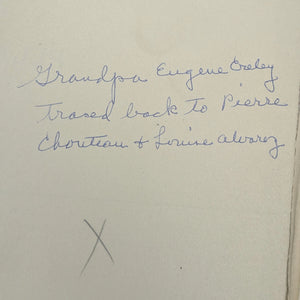
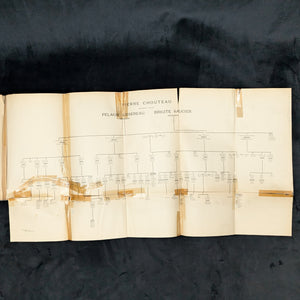
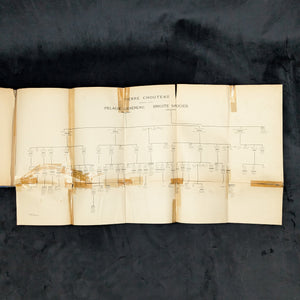
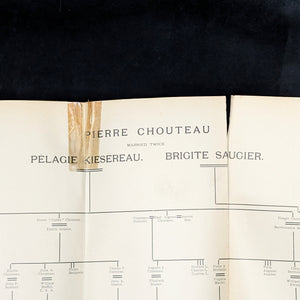
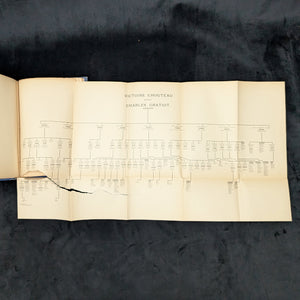
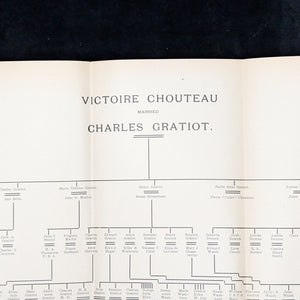


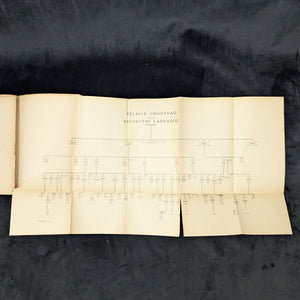
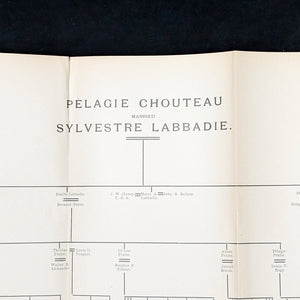
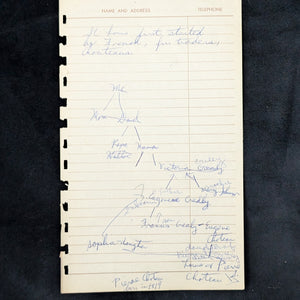

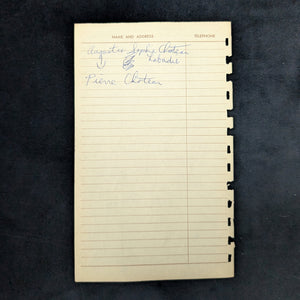
1. Introduction 📜🔍🏛️
This is a cornerstone work of American genealogical history, Creoles of St. Louis, by Paul Beckwith. The volume is a meticulously researched account of the French Creole community that founded the city of St. Louis.
As a rare first edition with unique genealogical annotations, this volume is a highly sought-after artifact for collectors of American history and genealogy. It offers a unique window into the lineage and legacy of the city’s early founding families, particularly the descendants of René Auguste Chouteau. This volume is an extraordinary find, representing a critical period of genealogical scholarship and urban development in the United States.
2. About the Book 📖✍️✨
Creoles of St. Louis is a comprehensive and detailed account of the French Creole people who settled and built the city of St. Louis. The work goes beyond a simple narrative to include extensive genealogical information, which was meticulously compiled. The book documents the lives, marriages, and lineage of the city's early families. Its content includes several folding genealogical tables that meticulously trace family lines, making it an invaluable resource for scholars and genealogists alike.
The book’s physical form is a solid example of late 19th-century American publishing. The original cloth-covered boards and gilt title reflect the importance of the work for its specialized audience. This particular volume is a fascinating artifact that illustrates the deep commitment of genealogists to their research. The unique annotations within its pages transform it from a printed book into a living document.
3. About the Author ✍️🏛️
Paul Beckwith was an American author and genealogist known for his meticulous research into the histories of early American families. He dedicated himself to documenting the lineage of the founders of St. Louis, a city with deep French and Spanish roots. His work was part of a larger trend in the late 19th century when Americans were becoming increasingly interested in their family histories.
Beckwith was a pioneer in his field, and his work provides a crucial perspective on the history of the American West that goes beyond the traditional focus on Anglo-American expansion. His work is a serious examination of the American experience and a constant reinvention of the historical narrative. His book showcases his unique voice and his willingness to grapple with the most intimate and challenging aspects of family history.
4. Historical/Political Era Context 🌍🕰️📜
Published in 1893, this book is an artifact of a period of immense change in the United States. St. Louis was rapidly transforming from a French-speaking trading post into a major American metropolis. The book’s publication reflects the desire of both the established Creole community and new residents to understand the city's origins. It was a time of great interest in American history and a desire to document the lives of those who had built the nation.
The book is a “time capsule” of late 19th-century genealogical and historical thought. It captures the spirit of an era when local history was being formally documented and cataloged. The volume reflects the values of its time and provides an honest, though respectful, look at the lives of a community that was often overlooked by mainstream historians. It serves as an important record of the transitional period between the frontier and the modern American city.
5. The Ideal Collector 💡🧐🏛️
This book is intended for a curator of American genealogical history, a scholar of St. Louis history, or a private collector of unique primary source documents. It is an ideal acquisition for an individual who values a book's dual nature as both a historical record and a personal, annotated manuscript. This is a perfect fit for a collection that cherishes the intimate story behind an artifact. It appeals to a collector interested in the intersection of history, family, and the art of bookmaking.
A true bibliophile would appreciate the unique annotations and the rich intellectual history contained within its pages. The book is an essential piece for an individual building a library that tells the story of how American families were built.
It is not just for display, but for a reader who is serious about understanding the lives and creative journeys of America's pioneers. This book is for someone who recognizes that the most valuable artifacts often tell a personal story.
6. Value & Rarity 💎✨🏛️
With unique annotations, this book represents a genuinely scarce, non-replicable asset class. Genealogical works from this period were often printed in small quantities for a specialized audience. The book is a unique window into the history of genealogical practice in the American West. The price is a direct reflection of the book's rarity, its historical importance, and the added value of the handwritten annotations.
The book's value as a scholarly document and a physical artifact makes it a strong acquisition. Its true worth lies in its historical context and its scarcity within the specialized field of antiquarian books. This is a unique and non-replicable asset class that is unlikely to reappear on the market for years to come.
This volume offers a unique opportunity to build a personal library with an item of true academic and historical importance.
7. Condition 🔎📚✨
This volume is a handsome survivor from the late 19th century, showing honest and authentic wear consistent with its age.
The original cloth binding is in solid state, with a tight and sound binding. The pages are free from any major tears or stains, and the interior text block is clean. The book is free of any detached or loose pages. The covers show some expected rubbing and scuffing, particularly along the edges and on the spine. The pages have some expected toning throughout, a natural process for paper, which gives it authenticity.
Its preservation is a powerful indicator of the high regard in which it was held by its previous custodians.
8. Fun Facts & Unique Features 🤓📜🤩
-
The city of St. Louis was founded in 1764 by French fur traders. It was the center of the North American fur trade for decades, and this book is an important record of the French Creole people who were at the heart of this trade.
-
The Chouteau family’s history is inextricably linked to the history of St. Louis, as they were co-founders and key figures in its development. The family’s patriarch, René Auguste Chouteau, was a native of Bearn, France, and his son, Auguste Chouteau, oversaw the first party of colonists to the site of present-day St. Louis.
-
The book's dedication to "PROF. G. BROWN GOODE, LL. D." adds a significant detail, as it shows the book was a gift to a prominent scholar of the period. This inscription highlights the intellectual and academic value the book held at the time of its publication.
9. Inscription: Analysis and Verbatim Transcription ✍️📜🔤
This volume contains handwritten annotations that provide a fascinating secondary layer of data, offering a unique personal history. The inscriptions are a mix of genealogical notes, corrections, and additions to the printed text and family trees. They are located on a loose-leaf page and on pages 50, 52, and 53 of the book. The handwriting is clear and legible.
The annotations provide a direct connection to a previous owner's family and their ties to the Chouteau lineage, adding an intimate and non-replicable element to this rare book.
-
Verbatim Transcription:
-
On the loose-leaf page: "St. Louis first started by French, fur traders, choutieaus."
-
Genealogical Tree: "Me," "Mom," "Dad," "Papa Hana Hatter," "Victoria Crealey," "Eugene Creadly," "Mary Johnson," "Francis Grealey," "Eugene Chouteau," "Sophia-daughter," and "Pierre Chouteau." The note "Pierre Chouteau born in 1819" is at the bottom. A separate note reads "Auguste Sophie Chouteau & Labadie," with an arrow pointing to "Pierre Chouteau."
-
On page 50: "cousin Louise" is written next to the text for "211. Pierre Sylvestre Chouteau." Below this is written "cousin of Grandpa Codeley."
-
On page 52: A nearly identical inscription next to the entry for "224. Auguste Chouteau" is "cousin Louise, She raised grandpa Codeley."
-
On page 53: "2nd cousin of Grandpa C" is written next to the entry for "229. William G. Chouteau."
-
10. Supporting Information 🏷️📦💰
-
Title: Creoles of St. Louis.
-
Author/Maker: Paul Beckwith.
-
Year: 1893.
-
Publisher/Foundry: Nixon-Jones Print. Co..
-
Place of Origin: St. Louis, MO, USA.
-
Format/Binding: Hardcover, Original Cloth.
-
Edition: First Edition.
-
Rarity: Rare.

